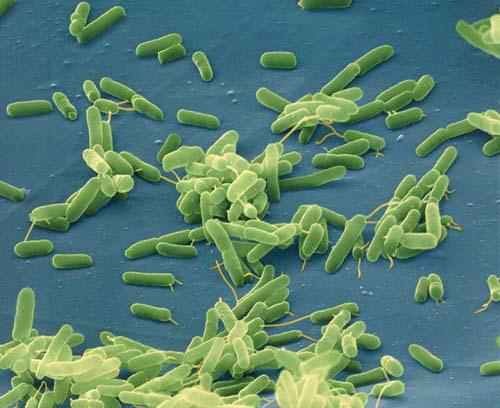Microbiota and us – we feed our bacteria even when we are sick!

There are good bacteria and bad bacteria. For millennia, we humans never made a distinction: bacteria were associated with diseases and death, no exception. It was known that we are carrying along a large assortment of microbes in our gut, but this was considered to be an evolutionary accident or a coincidence rather than a lucky occurrence for us. Recently, in the last 10-15 years, the scientists’ view on the bacteria living in our gut has changed drastically. Now we know that they are good for us in ways that we are just beginning to understand. What is already clear is that, without the bugs in our gut, we would be way worse off than we are.
Let us start with some numbers to put things in proportion: bacteria make up 1 to 3% of our body mass, which does not seem much. However, in absolute number, it means that we have approximately 10X more bacteria than we have cells in our body, which by itself is quite remarkable. The bacteria we carry around are also so diverse, belonging to literally hundreds of different species, that it is very hard to figure out the exact composition of one person’s bacterial population in detail. Not only they are more than “us”, strictly speaking, but they also have way more genes that we do (we have about 23K, the bacteria all together have 360X more, or 8 millions unique genes – http://www.genome.gov/27549144). Finally, we have bacteria literally everywhere – in the gut mostly, yes, but also on our skin, nose and mouth. And what do all these bacteria do? We do not know everything yet, but one thing they seem to be extremely good at is regulating our immune system in a beneficial way. And they are so important for us that we take care of them even when we are sick.
A paper published in the prestigious journal Nature recently showed that mechanisms are in place to take care of our microbiota in sickness, up to the point where the host organism synthesize a special food-fucose, a type of sugar. Sickness is often associated to a reduced caloric intake; during an infection we often eat less. This behaviour can have advantages: all the energy available is redirected towards fighting the pathogen, which is also deprived of nutrients. However, the microbiota is deprived of nutrients too.
The researchers showed that, in a mouse model, mimicking an infection – injecting the animals with a bacterial product- resulted in the rapid addition of fucose groups in the proteins in the cells lining the intestine. It is interesting to note that fucose can be used as fuel only by bacteria – eukaryotes organisms, such as mice and humans, do not exploit is to produce energy. These proteins, decorated with fucose, were then shed inside the intestine lumen, where the sugar could be cleaved off, taken up and used by the gut microbiota as a source of fuel. The presence of fucose also influenced the microbiota itself: the bacterial metabolism was altered after exposure to this sugar and the expression of virulence genes was reduced.
The ability to produce fucose was also linked to better prognosis after infection. Indeed, mice that could synthesize fucose had a better response to a non – lethal infection model (bacterial inoculation + rechallenge a few days after, using a bacterial product) than mice that could not synthesize fucose at all. Overall, the increased availability of fucose may be viewed as an emergency action that the host undertakes to support its gut commensals, since it has no obvious advantage for the host itself.
Such studies open windows on the complex relationships between us and our bacterial component, and they show the huge relevance that gut bacteria have for our wellbeing – they are too important to be left down, even with an infection ongoing!
If you are interested in the original article, you can find it here:
http://www.nature.com/nature/journal/vaop/ncurrent/full/nature13823.html
Zambetti L (2014-10-10 00:15:23). Microbiota and us - we feed our bacteria even when we are sick!. Australian Science. Retrieved: Mar 02, 2026, from https://ozscience.com/research-2/microbiota-us-feed-bacteria-even-sick/
 Follow
Follow